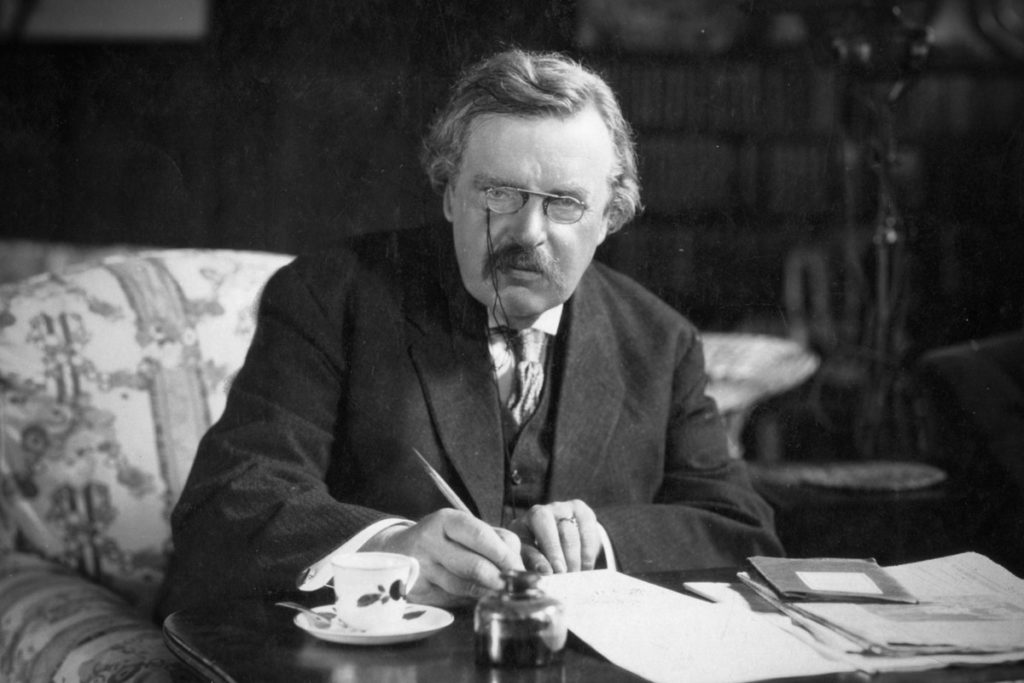Chesterton's Influence
His Influence on Other Influencers
The only argument against losing faith is that you also lose hope – and generally charity. (Hearst’s Magazine, Jan. 13, 1918)
G.K. Chesterton Tweet
Chesterton does not defend faith in general. He does not need to. Everyone has faith in something, even the atheist and the materialist. They will not believe a miracle based on the evidence but will reject based on their doctrine against miracles. Faith does not contradict reason, but faith precedes reason. In fact, says
Chesterton, “Reason is itself a matter of faith. It is an act of faith to assert that our thoughts have any relation to reality at all.” Faith is your first statement; it is your creed. In mathematics, “you cannot prove your first statement; otherwise it would not be your first statement.”
You can only build things with faith, you cannot build them with doubt. Especially when building a
philosophy. Chesterton says that men will not believe because they will not broaden their minds enough.
The faith that he defends is a very specific faith: the Christian faith as articulated in the Apostle’s Creed, a definite and historic faith that Chesterton embraced fully when he became a Catholic. It is a faith in an absolute truth that is outside of himself, that he did not invent. “I happen to believe, not by any merit of mine but rather the reverse, that the veritable objective truth of all things is also that which can satisfy all
hearts. But I quite agree that truth is to be preferred to mere satisfaction. And I cannot see why a sceptic should pretend to be satisfied with mere negation, any more than a sentimentalist should pretend to be convinced by mere sentiment.” (Illustrated London News, Jan. 12, 1929)
A religion be well-defined and not merely sentimental. “Faith is that which is able to survive a mood.”
(“The Orthodoxy of Hamlet,” Lunacy and Letters)
Chesterton committed his life to doing battle with doubters and unbelievers because he found their philosophies destructive to the world. “The inner weakness of our society today is that it has lost not only its faith in God but its faith in man.” (Daily News, Nov. 16, 1912) It is the loss of “faith in man” that is responsible for common sense becoming less common. “In ages of faith all men who believe work
together, and the result is common sense; in an age of doubt, the one man who believes has to work alone, and the result is an insane exaggeration. So it is specially with the drama. A great drama of the past does
not consist of one sincerity. A great drama consists often of twenty sincerities, all colliding with each other.” (T.P.’s Weekly, Christmas Number, 1907)
“Faith is that which is able to survive a mood.”
G.K. Chesterton Tweet





